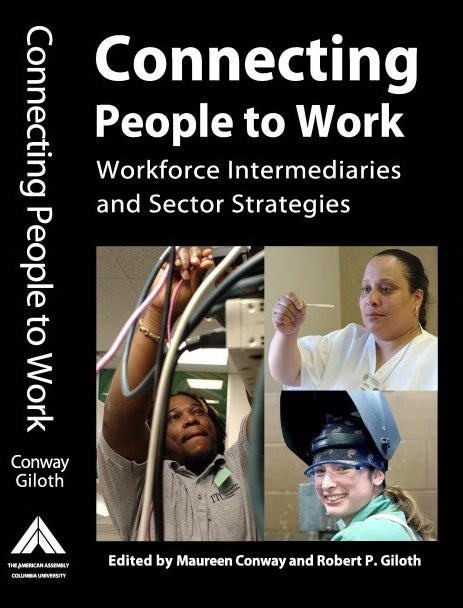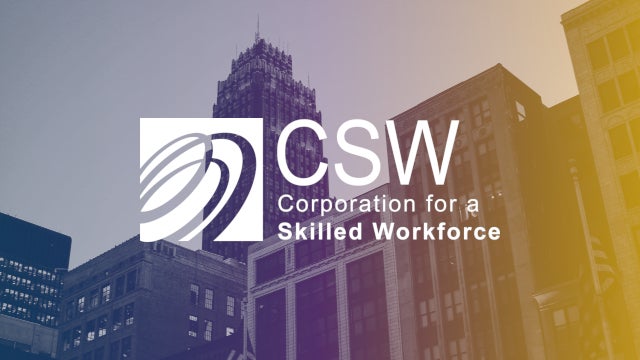With many Americans striving to build their skills to get jobs in a rapidly changing economy, the workforce development field has seen a significant increase in sector strategies, which focus on the specific skills that employers need and address the real-world challenges facing low-income workers. Maureen Conway and Robert P. Giloth deliver a robust volume featuring perspectives from prominent nonprofit and philanthropy leaders, academics and researchers to capture how sector-based workforce development, in industries ranging from health to construction, has evolved over 30 years — and how it can continue to grow and inform future investments and policy decisions. The book offers lessons for policymakers, philanthropic investors, researchers and local leaders interested in policies and practices that support strong businesses while helping struggling Americans connect to good jobs.
Connecting People to Work features case studies of organizations implementing sector-based workforce development strategies in the health care, construction, manufacturing and restaurant industries, and highlights how policy and economic changes and new practices among education and training institutions are affecting workforce development efforts. It also includes evaluation results and a review of major sector-financing strategies.
The book discusses the need for these workforce strategies at a time when many people are out of work or underemployed and face a labor market that is difficult to navigate. Too many workers today earn too little to make ends meet, and they often lack the time or resources to participate in local education programs that may or may not help them find work. Many low-wage workers often need additional support as they go through training, an approach generally adopted by sector strategies.
The results chronicled in the book make clear that such strategies can help create viable opportunities for more Americans to gain the skills they need to achieve greater financial stability.
The book was co-edited by Maureen Conway, vice president for policy programs and executive director of the Economic Opportunities Program at the Aspen Institute, and Robert P. Giloth, vice president of the Center for Community and Economic Opportunity at the Annie E. Casey Foundation.


